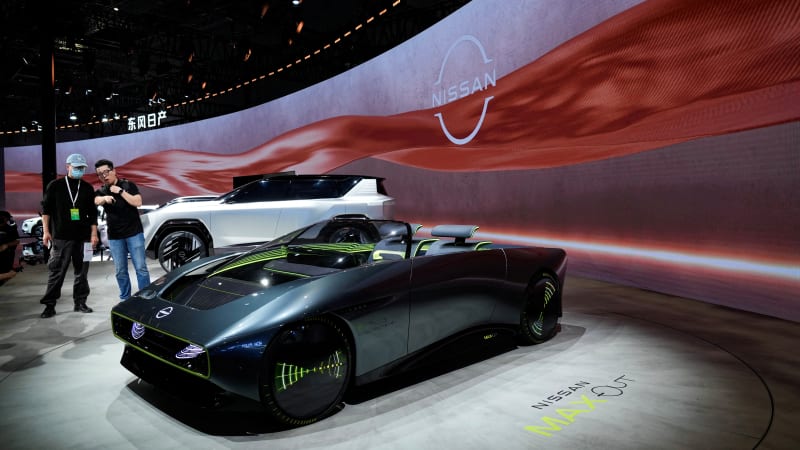Nissan erases almost $2 billion in market value as China worries deepen

TOKYO — Shares in Nissan Motor tumbled 12% on Friday, their biggest decline in more than two decades, after quarterly earnings undershot expectations by a large margin and it cut estimates for car sales due to stiff competition in China.
The emergence of fast-growing, Chinese brands such as BYD that have rolled out affordable electric cars tailor-made for younger Chinese drivers has led to a steady loss of market share for foreign rivals in the world’s biggest auto market.
The stakes are, however, arguably greater for Nissan, which until 2022 counted China as its largest market. It has also struggled to fully recover after years of internal turmoil sparked by the arrest and downfall of former Chairman Carlos Ghosn.
Compared to rivals Toyota Motor and Honda Motor, Nissan is the “most vulnerable” in China where it has less brand equity and brand value, said James Hong, head of mobility research at Macquarie.
“They feel the most pressure,” he said. “Many Chinese makers are becoming more and more aggressive and obviously chasing market share.”
Friday’s 11.6% decline wiped out $1.8 billion of Nissan’s market value.
A day earlier, it reported third-quarter operating profit of 141.6 billion yen ($948 million) – a fifth lower than an LSEG consensus estimate from analysts – and cut its global vehicle sales outlook by 150,000 cars to 3.55 million.
Chief Financial Officer Stephen Ma told reporters the sales forecast was scaled back due to the automaker’s performance in China – where Nissan’s sales are down by a quarter for the nine months to Dec. 31 and also cited stiffer competition in other key markets, including the United States.
The company is taking steps to boost its competitiveness, such as adjusting incentives, he added.
Zero margins?
Given the cut-throat competition, overseas automakers are being forced to cut prices in China, adding to the pain from slumping sales. Nissan said net revenue per vehicle declined by 8% in China from the previous year.
That raised the spectre of a “zero-margin business” for Nissan, where it could face sales that just break even, said Macquarie’s Hong.
Japanese automakers, “need to develop models that are suitable for the Chinese market,” said Shinya Naruse, a senior analyst at Okasan Securities. Staging such a recovery could take a couple of years, he said.
Chinese buyers, especially younger ones, gravitate toward technology features such as driving assist systems, automated parking and voice recognition that are increasingly common from Chinese manufacturers but that international brands have been slow to offer.
One strategy Japanese automakers could take would be to roll out models that meet local tastes and then use excess capacity at plants in China to build models for export.
Nissan said in November it will start exporting cars from China to other overseas markets from 2025, initially aiming for annual volumes of somewhere between 100,000 and 200,000 vehicles.
Honda will also seek to optimise its manufacturing capacity in China, CFO Eiji Fujimura told reporters on Thursday but did not elaborate.
Hong warned that utilising production capacity in China for exports has a low return on invested capital.
Nissan’s Ma said that Nissan had made progress in boosting sales in China in the fourth quarter, shifting its China focus to regaining sales in cities and regions where electrification is happening at a slower pace.
That helped the automaker increase sales by almost 20% in the final three months of last year, he said.
“We aim to stay in China and we want to be a relevant player and a sizeable player in China,” he said.
Related viedo:



